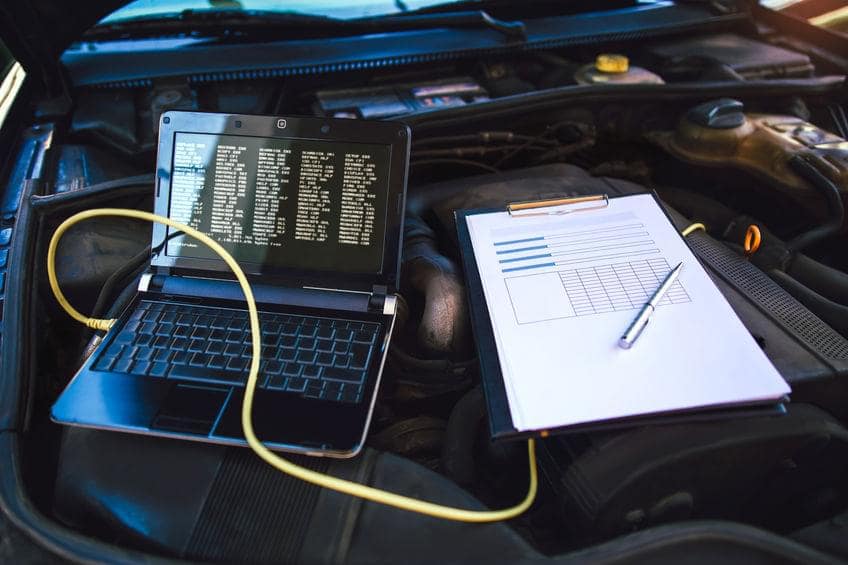A pre-purchase inspection checklist is essential when you buy a car. Even if you’re buying a new car from a dealership, you want a vehicle checklist. Not every automobile comes off the assembly line in flawless condition.
Purchasing a new or used vehicle demands being somewhat familiar with the car buying trends. This way, you know what to expect in pricing, features, and safety packages. If you are buying from one of the 18,000 dealerships in the United States, often this information will be provided ̶ but not always. If you are buying from a private party, you will have to do a little extra research to obtain this data.
You’ll want to have a mechanic inspect any car you buy. Take that opportunity to discuss whether he offers a pre-purchase inspection.
What is a Pre-Purchase Inspection?
A pre-purchase inspection is done by a licensed mechanic or technician who thoroughly checks a vehicle for evidence of mechanical, structural, or cosmetic damage.
The used car inspection checklist will ensure nothing is missed during the assessment. It will save you money in both the long- and short-term. You will save thousands by avoiding buying a car you'll end up junking in a few months.
Also, your mechanic can determine whether the car is suitable to be sold or whether minor repairs need to be done. This information can be used to negotiate a better deal on the price.
The automotive repair industry generates $880 billion annually. A professional vehicle inspection will keep you from costly repairs. Yet, there are a few things you should look for when you first see the car. Here are a few:
- Inspect the paint for scratches, dings, and minor dents
- Check the electrical, power window and lock systems, and dashboard displays
- Examine for fluid leaks
- Look over the battery, cables, and wiring
- Listen for noise inside and outside the vehicle
- Check tire pressure and tread for wear patterns
- Ensure lights and bulbs are all working
The vehicle's absolute value is one of the most crucial factors to consider when buying a new car. This can best be determined when it has been systematically inspected. For this reason, you will want to know what a vehicle checklist entails.

A Comprehensive Pre-Purchase Vehicle Inspection Checklist
Not all pre-purchase inspections are done the same. You’ve heard the used car commercials that talk about their 160-point vehicle inspections. This means they examine 160 places in the car before the vehicle is purchased. The industry standard is a 100-point inspection. Check with the mechanic to see what his standards are.
There are 5 general categories that the mechanic will examine. Each grouping will have a detailed checklist of its own.
1. Overall Condition
When your mechanic inspects the overall condition, he looks at interior door panels, carpets and upholstery, seats, dashboard, and consoles. He will examine every hinge and every small moving part. Once he has completed that evaluation, he will look for any defects in the trim, chrome, stainless steel, plastics, lenses, glass, and emblems. The spare tire, tools, and accessories will also be accounted for and checked for damage to ensure they are working correctly.
2. Engine Compartment and Mechanicals
This is where you want to ensure that your mechanic is the most thorough. The engine is the most essential part of the vehicle’s operation and where most of your money will go in repairs if something breaks down.
After evaluating the compartment under the hood for damage, past repairs, bodywork, even paint color changes, your mechanic is going to check for the engine fluids, reservoirs, and hoses. He will move onto the overall condition of the engine, drive-train, brakes, and safety systems. A road test drive will be the best way for your technician to complete the inspection.

3. Body Panels
The exterior of the vehicle will be the next thing for the mechanic to check. He will walk around the car, and note any body damage, signs of deterioration, cracks, chips, and gaps in body panels. Next, he will assess the undercarriage, and the frame, and document any rust.
4. Wheels and Tires
An experienced mechanic is not going to just check tire pressure or the life of the tread. The wear and tear on the rubber of a tire will tell the mechanic if there are alignment issues, problems with the brakes, and whether the shocks and struts are malfunctioning.
The wheels are going to be the next thing the mechanic examines. He’s going to be looking for damage on the rims, cracks in the wheel wells and make sure all the lug nuts are present.
5. Maintenance History and Incident Reports
Knowing whether the car has been regularly maintained will best indicate whether you will need to replace vital engine parts down the road. Maintenance records will be able to tell you any work the car has had done, as well as whether previous owners adhered to the manufacturer’s recommended maintenance schedule.
Your mechanic’s pre-purchase inspection checklist must include a place to notate all records and legal documents. Title, registration, previous inspections, and a CARFAX incident report should all be included in the packet.

Why You Need a New or Used Car Inspection Checklist
Buying a new or used car is stressful. If there is any way to alleviate the uncertainty, you will gladly take that route. A vehicle inspection will offer you the peace of mind you want and need. Contact your licensed automotive service technician before you purchase your next car.
If you don’t have a mechanic that you already know and trust, there are resources for you to determine the best place to go for a pre-purchase vehicle inspection. You can even order a pre-purchase inspection online through MotorTech Classic Car Network, Auto Appraisal Group (AAG), and FossilCars.
Understanding the total cost of buying a car includes calculating how much it is to have a pre-purchase inspection done. They aren’t expensive, and should roughly cost $200 to $300. Consider it as an investment into your future vehicle.
You can contact us by phone: +1-888-871-4488 or by email: [email protected]


